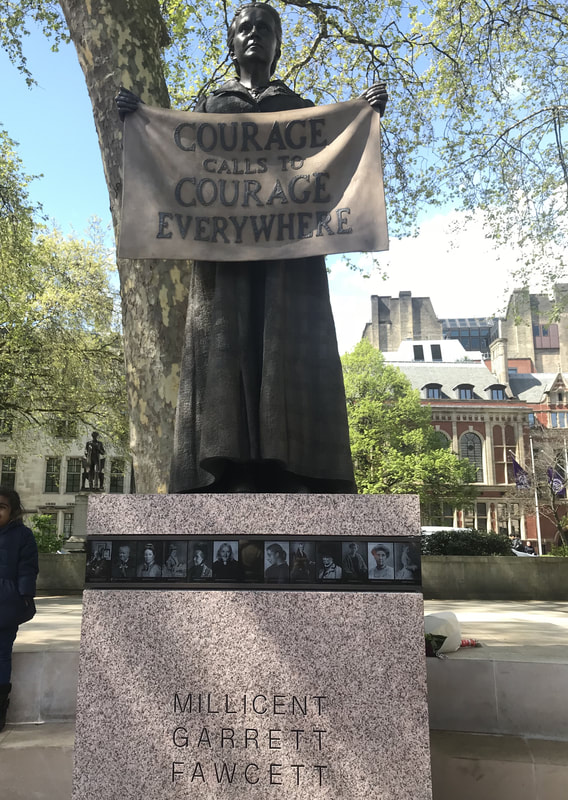The conversations which World IP Day has inspired this year are not just for one week or even one month. They should stay with us well into the future, as we work together to ensure that women can continue to power change in the IP world and beyond.
Dr Hayleigh Bosher, founder of World IP Women and a senior lecturer in intellectual property law, invites us to consider how best to empower the women who work in innovation, creativity and IP, and how we will know when we’ve succeeded. We think it’s an inspiring way to end World IP Day, looking to a future full of powerful IP women.
But our blog posts will continue… because World IP Day this year is only the start of a hugely important conversation.
Hayleigh writes: “Happy World Intellectual Property Day! As you are no doubt aware, this year’s WIPO theme for World IP Day is “powering change: women in innovation and creativity.” So far, we have heard some wonderful stories celebrating women in innovation, creativity and IP. For example, Kathryn Pickard looked at the role of women at the IP bar, Lee Davis explored the important role of women in the patent profession, and Eleanor Wade told us about women as inventors and patent applicants and their vital contribution to the STEM industries.
Recently, when discussing the theme, I have found myself repeatedly saying, what I strongly believe to be true: that in order to progress such ‘change’ we must empower the women who already work in innovation, creativity and IP.
But what does it actually mean to empower women? Are there palpable steps we can take to visibly see women empowered, and what would it look like if women in IP were empowered? So, let’s gather some thoughts on these points.
What does it mean to empower women in IP?
Firstly, it’s important to understand that empowerment is recognising that we are not trying to provide women with something that they do not already have. Instead, it means helping women to realise their worth, and recognise their abilities and potential. It also signifies encouraging women to claim their rights, where they have previously been repressed.
I also believe that powering change cannot come from simply increasing the number of women in IP, because the numbers are not the issue in themselves, they are reflecting broader issues. This is demonstrated by looking at the number of women who start a career in IP, but either leave, or are unable to progress. We could encourage more women to work in the field of IP and this could improve the statistics for a while, but would it really change the nature of field? Equally, it’s brilliant that more and more companies and conferences are agreeing to implement diversity policies, but just because there is a female speaker on a panel, does that elicit fundamental change? Will she have the confidence and self-belief to really say what she thinks? If so, will she be heard, will her opinions be respected?
Therefore, it’s not just about pushing numbers to improve the stats of women in IP. The gender ratios that we see currently are merely the effect. The issue is deeper and must be healed at the level of cause.
What steps can we take to empower women in IP?
In my experience, there are two fundamental ways to empower someone: inspiration and esteem.
The new suffragist statue of Millicent Fawcett (see picture above) proudly states: “courage calls to courage everywhere.” I couldn’t agree with her more. Whenever I see a woman who is, quite frankly, kicking-ass, in any field or endeavour, I am inspired, and it ignites a fire in me! The way to utilise this for women in IP is to ensure that the women who are kicking-ass in IP are more visible and celebrated.
This is one of the reasons that I created World Intellectual Property Women. WIPW hosts a directory/speaker bank which intends to make women who work in IP more visible – it is an easy way to locate women who specialise in a particular area of IP, who can then be invited to speak at conferences or join projects etc.
The second way to empower someone is to build esteem, self-confidence and self-belief. This is particularly important for women because there is a kind of collective wound that has formed, as a result of generations of oppression, which has manifested into various forms of self-doubt and “imposter syndrome.” To overcome this, we need to support and encourage each other. That is why WIPW also aims to connect women in IP to their local community and to each other across the world.
What would it look like if women in IP were empowered?
For me, there would be four key things we could see:
1. More women (well duh!).
2. Particularly, more women in higher positions, positions of authority (with equal pay obviously), speaking on expert panels, at conferences, being seen, celebrated and respected for their contributions.
3. In order for this to occur, there would be more women in IP feeling confident in themselves, to voice their opinions, share their research, and know that they will be heard.
4. A strong and supported community spirit cultivated in the field of IP as a whole, embraced by all!”
